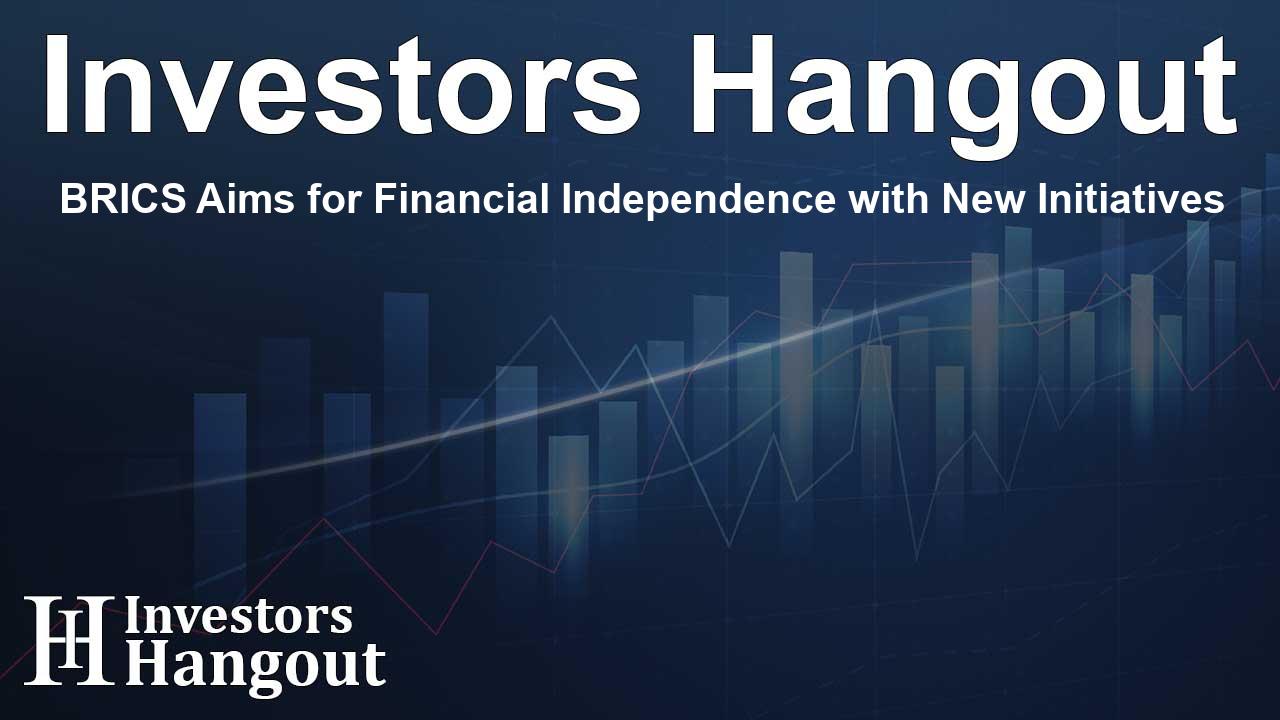BRICS Aims for Financial Independence with New Initiatives

Russia Urges BRICS Partners for Financial Freedom
In a significant move, Russia, currently chairing the BRICS group, has called upon its member nations to establish a financial alternative to the International Monetary Fund (IMF). This initiative aims to reduce the growing political influence exerted by Western countries and pave the way for greater economic autonomy among BRICS nations.
Expanding BRICS Membership and Objectives
BRICS began as a coalition of Brazil, Russia, India, and China, but it has recently expanded to include South Africa, Egypt, Ethiopia, Iran, and the United Arab Emirates. The aim of this collaboration is to enhance economic cooperation and provide a platform for collective action, especially in response to recent economic challenges posed by Western nations.
Challenges Faced by Russia
Russian Finance Minister Anton Siluanov, who is playing a pivotal role in these discussions, emphasized the control exercised by Western nations over the global financial system. He pointed out that BRICS countries, which collectively represent around 37% of the global economy, are in dire need of developing a robust alternative to existing financial structures.
The Role of the IMF and World Bank
During the first day of discussions, Siluanov explicitly stated, "The IMF and the World Bank are not fulfilling their duties appropriately and do not act in the best interests of BRICS nations." He advocated for the creation of new financial frameworks or institutions, similar to the historic Bretton Woods system, specifically tailored to serve the BRICS community.
Impact of Western Sanctions
Following the invasion of Ukraine in early 2022, Russia has experienced significant challenges, including frozen foreign reserves in dollars and euros and severe sanctions that have hampered its financial operations. These restrictions have effectively severed Russia from international capital markets, necessitating alternative routes for economic engagement.
Delays in Transactions and International Cooperation
Russia has also faced transactional delays with its trade partners, including those within the BRICS framework. The hesitation of banks to process transactions with Russia stems from concerns over potential backlash from Western regulatory bodies. This situation underscores the urgency for BRICS nations to enhance financial integration.
BRICS Bridge and Financial Integration
The concept of a BRICS Bridge payments system, which was introduced by Elvira Nabiullina, the Governor of Russia's central bank, aims to connect the financial systems of BRICS members. However, the progress on this initiative has been slower than anticipated, prompting calls for more decisive action.
New Development Bank: A Step Forward
Since its establishment in 2015, the New Development Bank has been the only financial institution launched by BRICS nations. This bank was designed to facilitate funding for infrastructure and sustainable development projects within BRICS countries and other emerging economies. Its operations represent a crucial step towards financial collaboration among member states.
Looking Ahead: The Future of BRICS Financing
As the global economic landscape continues to evolve, BRICS remains focused on finding innovative solutions that enhance the financial integrity and sovereignty of its members. Questions about the future of global finance are at the forefront, and whether BRICS can successfully establish a noteworthy alternative to conventional financial institutions like the IMF will be pivotal to its objectives.
Frequently Asked Questions
What is the main goal of Russia's push within BRICS?
Russia aims to foster economic independence among BRICS nations by creating a financial alternative to the IMF.
How has the BRICS membership changed over time?
BRICS has grown from four original members to include South Africa, Egypt, Ethiopia, Iran, and the UAE, enhancing its global economic influence.
What challenges are facing Russia amidst Western sanctions?
Russia faces frozen reserves, restricted access to capital markets, and transactional hurdles with international partners due to sanctions.
What is the BRICS Bridge payments system?
The BRICS Bridge payments system is a proposed framework for financial connectivity among member nations, aimed at reducing reliance on Western financial systems.
What role does the New Development Bank play for BRICS countries?
The New Development Bank finances infrastructure and sustainable projects, serving as a crucial means of financial collaboration among its members.
About Investors Hangout
Investors Hangout is a leading online stock forum for financial discussion and learning, offering a wide range of free tools and resources. It draws in traders of all levels, who exchange market knowledge, investigate trading tactics, and keep an eye on industry developments in real time. Featuring financial articles, stock message boards, quotes, charts, company profiles, and live news updates. Through cooperative learning and a wealth of informational resources, it helps users from novices creating their first portfolios to experts honing their techniques. Join Investors Hangout today: https://investorshangout.com/
Disclaimer: The content of this article is solely for general informational purposes only; it does not represent legal, financial, or investment advice. Investors Hangout does not offer financial advice; the author is not a licensed financial advisor. Consult a qualified advisor before making any financial or investment decisions based on this article. The author's interpretation of publicly available data shapes the opinions presented here; as a result, they should not be taken as advice to purchase, sell, or hold any securities mentioned or any other investments. The author does not guarantee the accuracy, completeness, or timeliness of any material, providing it "as is." Information and market conditions may change; past performance is not indicative of future outcomes. If any of the material offered here is inaccurate, please contact us for corrections.